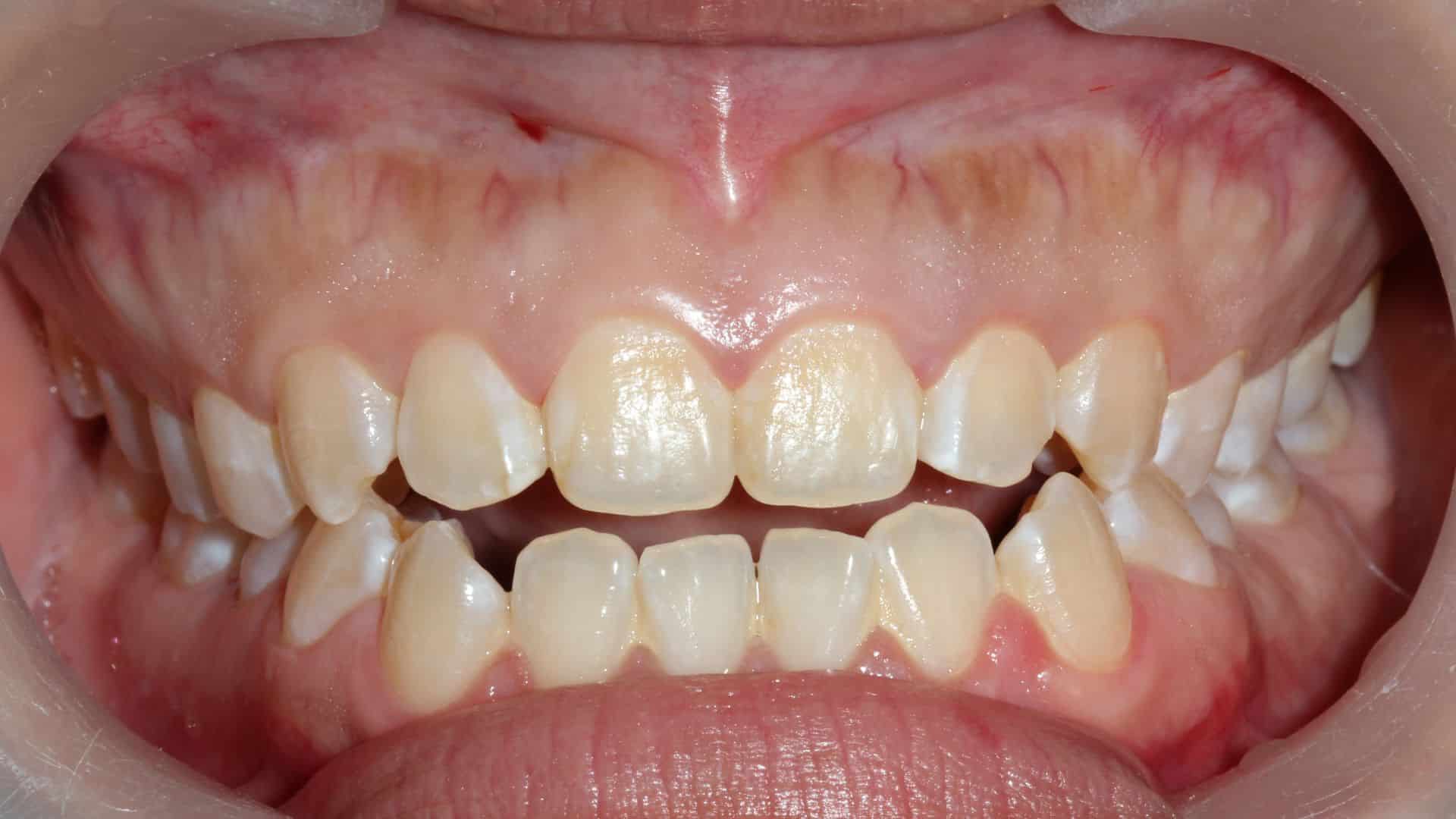
Have an open bite? What you need to know
An open bite, not to be confused with an overbite, is an orthodontic malocclusion, which is an imperfect positioning of teeth when the mouth is closed. Sometimes it’s simply referred to as having crooked teeth or a bad bite.
When an overbite exists, the anterior incisors are not overlapping or contact one another. These are the 12 teeth that make up the front of your mouth.
Because an open bite can make eating more difficult and can make people feel self-conscious, which in turn can lead to lower self-esteem and not wanting to smile, it’s an important condition to address.
What Are the Causes of Open Bites?
Many open bites occur genetically, and sometimes they develop during the transition from primary teeth to permanent teeth. There are also several behaviors or conditions that can cause them as well.
Those behaviors include thrusting the tongue against teeth, pushing on the teeth, thumb sucking, and long-term pacifier use. Other conditions that can lead to open bites include obstructed airways, increased size in the adenoids, and the enlargement of bony structures in the noise (this can block airflow).
What Types of Open Bites are There?
Anterior Open Bite: The front teeth do not touch, and overlap between the upper and lower incisors does not exist. Habits such as thumb sucking, thrusting the tongue, and extended use of a pacifier (more than 18 months) can cause anterior open bites.
Late in the primary stage or during the transitional stages of dentition (tooth development), thumb sucking (or any digit) can cause other problems. Among them are upper teeth flaring out, lower teeth flaring in, an increase of an open bite, and a posterior crossbite (the top back teeth sit inside the lower back ones).
Posterior Open Bite: Rear teeth such as molars or premolars do not come into contact with their counterparts. This can happen when an open bite is related to one or more teeth, and failure of tooth eruption (teeth entering the mouth and becoming visible) can also cause this open bite to occur.
Dental Open Bite: The anterior teeth do not touch one another. It may occur when the patient has a horizontal growth pattern, and thumb sucking and tongue thrusting can cause this type of open bite as well. There is normal jaw growth and the face is not elongated.
How Can You Treat an Open Bite?
Behavior modification can lead to correction if it occurs in time. For example, if thumb sucking ceases before permanent teeth come in. Self-correction can occur. Likewise, ending a tongue thrust habit can avoid problems with tooth eruption that can cause posterior open bites. If behavior modification doesn’t work or the habits are involuntary, then specialized appliances may help. Consult an orthodontist for this.
When self-correction doesn’t occur, or if it’s too late for it, then scheduling treatment from a qualified orthodontist will be necessary. At Southern Orthodontic Specialists, our team has the experience, training, and skill to correct open bites and other orthodontic issues. Nothing makes us happier than seeing the joy and confidence that come from a great smile!
